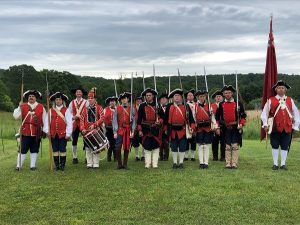Regional News
National Zoo’s Iconic Pandas to go to China Without Replacements
The National Zoo’s three resident pandas are scheduled to return to China by Dec. 7, leaving one of the most popular attractions in the nation’s capital without its iconic bears for the first time in over 20 years.
The pandas are leaving the National Zoo due to the expiration of the cooperative breeding agreement with the China Wildlife Conservation Association. The departures come amid strained relations between the United States and China.

One of the National Zoo’s three pandas, 25-year-old Mei Xiang, enjoys a sunny moment in a tree. The pandas will be gone by early December. (Abby Wallace/Capital News Service)

Three-year-old panda Xiao Qi Ji amuses himself on a recent day at the National Zoo. He and his parents soon will be sent to China. (Abby Wallace/Capital News Service)
“Our team is still in conversation about what the future of our panda conservation program is going to look like,” said Ellie Tahmaseb, spokeswoman for the Smithsonian’s National Zoo & Conservation Biology Institute, told Capital News Service. “We’ve been doing panda conservation for the past 51 years, both with the pandas here at the zoo and pandas in China. And we will be continuing that program, whether there are pandas physically here in D.C. or not.”
The National Zoo currently has an adult male, Tian Tian, and an adult female, Mei Xiang, and their son, Xiao Qi Ji. Tian Tian, whose name means “more and more” in Mandarin Chinese, is 26. Mei Xiang, whose name means “beautiful fragrance,” is 25.
The pair were born and raised at the China Research and Conservation Center for the Giant Panda in Wolong, Sichuan Province; they arrived at the National Zoo in 2000.
Mei Xiang and Tian Tian have had seven cubs, four of which, including Xiao Qi Ji, have survived to adulthood.
Each successful panda birth at the National Zoo was through artificial insemination. Xiao Qi Ji’s surviving elder siblings were returned to China in the 2010s under the Giant Panda Cooperative Research and Breeding Agreement with the China Wildlife Conservation Association. The agreement requires that all panda cubs born at the National Zoo must be sent to China by the time they turn four.
Xiao Qi Ji, whose name translates to “little miracle,” was born in August 2020. Mei Xiang was 22 when she gave birth to him, making her the oldest giant panda to give birth in the United States.
Xiao Qi Ji is the youngest panda still in the country, and he will likely be the last panda born in the United States for the foreseeable future. Upon his arrival to China, he will enter into a breeding program.
The initial 10-year agreement with the China Wildlife Conservation Association began in December 2000 when Mei Xiang and Tian Tian arrived at the National Zoo and has been renewed three times since 2010.
Conservation efforts around the globe have proved so successful that in 2016, the International Union for Conservation of Nature upgraded the giant panda from “endangered” to “vulnerable.”
An estimated 1,864 giant pandas live in the wild in central China, and an additional 600 are in zoos and breeding centers around the world, according to the Smithsonian.
When it is time for Mei Xiang, Tian Tian, and Xiao Qi Ji to leave the National Zoo, the pandas will board a FedEx plane for an approximately 16-hour flight with a National Zoo veterinarian and panda keepers, according to Tahmaseb.
On the flight, the pandas and staff will bring supplies for the bears that include food and enrichment activities. Upon their arrival, Mei Xiang, Tian Tian and Xiao Qi Ji will move into giant panda bases managed by the China Wildlife Conservation Association. It is unknown if the three will stay together.
“I think it’s very bittersweet,” Tahmaseb said. “You know, we have some staff, in particular, a panda team, who have been working with these animals for decades, in some cases. And so I think it’s pretty hard, right?”
Dawn Ginnetti, a Washington resident and George Washington University employee took in the pandas with her friend Shannon Whitaker during a National Zoo celebration dubbed “Panda Palooza: A Giant Farewell” during the last week of September.
“When you come here, and you see a panda, you think, ‘I want to conserve their environment. I want to preserve that. I want them to be around. So, what can I do?’” Ginnetti said. “So, it really makes people think about the planet in a different way.”
Whitaker, a photographer and Tallahassee, Florida resident, said her favorite memory of the pandas involved bringing her three daughters up from Florida to see the bears in the winter.
“We watched all the pandas come out and sit in the snow, and they were just so inquisitive about the weather,” Whitaker said. “It was just really beautiful. And to see my children and all the other children and adults, just in awe of that beauty.”
Tahmaseb started working at the National Zoo in February and got to celebrate each of the pandas’ birthdays this year. While marking Tian Tian and Mei Xiang’s birthdays, she began doing the math and realized these were the same pandas that she saw while visiting the National Zoo as a child.
“That was sort of a fun realization of being like, oh my gosh, these are the exact same bears that led me to love zoos as a child,” Tahmaseb said.
Bronwen Hale Dearden, a caregiver from Loudoun County, Virginia, and her children were delighted to spend a weekday morning admiring the pandas. Despite living close to the nation’s capital, she had never seen the pandas with her kids.
“I mean, it’s definitely sad,” Hale Dearden said. “I know, like my mother-in-law, and a lot of my friends are like, ‘We’re gonna go! We need to go so many times!’”
“It is a little sad because it seems like a symbol of our relationship with China, you know? To a certain extent.” Hale Dearden said. “The withdrawal of the pandas, even though I know the official policy is that it’s nonpolitical, it feels like it’s maybe a little weighted.”

Tian Tian, the 26-year-old male adult panda at the National Zoo, enjoys a sunny day outside the Panda House. (Abby Wallace/Capital News Service)

Mei Xiang, the 25-year-old female panda at the National Zoo, offers a classic pose. (Abby Wallace/Capital News Service)
China’s leasing of pandas to other countries as a diplomatic tool came to be known as “panda diplomacy” and formally dates back to the 1950s.
Nearly every panda in the world is considered Chinese property. Leasing them out is seen as a gesture of goodwill to other nations and a way to broaden conservation efforts for the species.
Pandas first arrived at the National Zoo in 1972 as a gift from Chinese Premier Zhou Enlai to commemorate President Richard Nixon’s historic visit to communist China, the first by an American president.
At a gala during the visit, then-First Lady Patricia Nixon mentioned her fondness for pandas to Zhou: “Aren’t they cute? I love them.”
The premier responded with, “I’ll give you some.”
After that, arrangements were made for a pair of pandas, Ling-Ling and Hsing-Hsing, to be loaned to the National Zoo.
Pat Nixon accepted the bears on behalf of the American people and joked that “panda-monium” would break out at the zoo.
Ling-Ling and Hsing-Hsing lived the rest of their lives at the National Zoo.
On Dec. 30, 1992, Ling-Ling succumbed to heart failure at 23. Hsing-Hsing passed away on Nov. 28, 1999, at 28. That was the only time in the last 51 years that the National Zoo did not house pandas until Mei Xiang and Tian Tian arrived the following year.
“There was a period between 1999 and 2000 when we didn’t have pandas here at the zoo. I think a lot of people forget about that,” Tahmaseb said. “But you know, just because we didn’t have pandas physically here in D.C., didn’t mean that we weren’t gonna be having them again in the future.”
Over the past four decades and through 10 presidencies, U.S.-China diplomatic relations have been warm and cool, but panda diplomacy has remained constant. However, those relations have entered a much cooler phase in recent years.
“(Donald) Trump, rhetorically, was very harsh on China… with COVID, with trade,” said Dr. Scott Kastner, a University of Maryland political science professor.
Trump launched an economic trade war against China, imposing tariffs on billions of dollars of imports from that nation. The Biden administration has maintained those tariffs.
In April 2022, then-House Speaker Nancy Pelosi, D-California, visited Taiwan. Beijing took great offense, claiming Taiwan is a rebellious breakaway province.
In January, a Chinese balloon appeared over the United States that the Biden administration ordered shot down. U.S. intelligence officials say the balloon was capable of gathering sensitive American military information.
“For the Biden administration, I think it has been tougher on sanctioning and also being pretty serious about trying to kind of compete with China,” Kastner said.
The pandas’ departure from the National Zoo is part of a panda exodus from American zoos.
The San Diego Zoo returned its pandas in 2019; the Memphis Zoo returned its panda earlier this year.
Once the National Zoo’s pandas leave, Zoo Atlanta will be the only facility in the United States housing the animals. However, Atlanta’s four pandas are expected to return to China next year when the zoo’s loan agreement expires.
There still is no official date for the National Zoo’s pandas to return to China, but it must occur by Dec. 7, when the agreement expires.
“Just because there may not be pandas at the zoo, whether that’s for a short period of time or for an extended period of time, doesn’t mean that we are not committed to continuing our panda conservation work,” Tahmaseb said.
The National Zoo has trained over 1500 professionals in panda conservation and built a research framework for breeding and reproductive support in the wild.
“We are very hopeful for the future — both here at the zoo and for pandas in the wild,” Tahmaseb said.
The National Zoo is anticipating a “bit of a downturn” regarding attendance and merchandise sales after the departure, according to Tahmaseb. The facility will also stop using pandas in advertising campaigns and begin to focus more on other species that call the National Zoo home.
As for the National Zoo’s panda keepers, many of them will begin working with different animals on the Asia Trail.
“There’s plenty of other animals… nobody’s going to be losing their job over this,” Tahmaseb said.
The David M. Rubenstein Family Giant Panda Habitat was last renovated in 2007 and will remain vacant after the departure.
“We’re going to be putting in some renovations that we have discussed with our colleagues on the Chinese side,” Tahmaseb said. “Upgrades that we are going to be making, further suggestions to make sure that the habitats are as ready to go for pandas in the future, as we are hoping to have them again.”
As Washington prepares to say goodbye, zoo guests hope it isn’t forever.
“If we can get them back,” Hale Dearden said. “Bring them back!”
By ABBY WALLACE and RYAN MERCADO
Capital News Service
Regional News
House Narrowly Passes Bill to Include Citizenship Question in Census
WASHINGTON — The Republican-led House Wednesday passed a bill to add a citizenship question to the decennial census and exclude non-citizens from the population count used to determine federal representation.
No House Democrats voted for the bill, which passed along party lines 206-202. The vote sends the bill to the Democratic-controlled Senate, where it is unlikely to move forward.
Census data determines the number of congressional districts in each state and the amounts of federal funding distributed to each state.
“Common sense dictates that only American citizens should be counted for electoral apportionment,” House Speaker Mike Johnson, R–Louisiana, said in a statement after the vote.
Johnson said including non-citizens in congressional reapportionment rewards illegal immigration and cities with relaxed immigration policies with more representation.
However, Democrats argued Wednesday that the bill would unfairly harm people who came to the country both legally and illegally with less federal funding and weaker representation of their communities.
“We don’t need to start finger-painting on the Constitution with this silly election-year proposal,” Rep. Jamie Raskin, D–Maryland, said on the House floor. “This is a land that is built on immigration.”
The census last included a citizenship question in 1950. During his presidency, Donald Trump attempted to add the question to the 2020 census but was blocked by the Supreme Court.
Senate Majority Leader Chuck Schumer, D–New York, was critical of the citizenship question in 2019 when he accused Trump of “intimidating communities of color.” House Republicans want only the number of U.S. citizens in an area to count for representation. If enacted, this legislation could decrease federal representation for states with large immigrant populations, including California, Florida, and Texas.
“The mere presence of illegal immigrants in the United States is having a profound impact on the outcomes of elections, skewing the representation of Americans,” Rep. Chuck Edwards, R–North Carolina, said on the House floor.
Edwards, the bill’s sponsor, added that non-citizens have no allegiance to the United States and should not count for representation.
Rep. Nanette Barragán, D–California, countered that adding a citizenship question would have a “chilling effect” on census participation by immigrant communities.
Opponents of the bill said that immigrant communities might be afraid to answer the census with a citizenship question over fears of being reported to law enforcement agencies.
“This would deprive immigrants of representation and resources,” Barragán said.
Johnny Zuagar, president of the American Federation of Government Employees Census Council 241, told Capital News Service Tuesday that Trump’s push for adding the question to the 2020 census caused chaos and difficulty for census workers.
Zuagar said U.S. Census Bureau employees had to work hard to regain trust in immigrant communities. “Our staff has done a great job of just trying to build relationships throughout the country with different groups, especially Hispanic groups,” Zuagar said. “We just don’t want to add more challenges.”
Census employees cannot legally provide identifiable information to anyone, including law enforcement.
By KATHARINE WILSON
Capital News Service
Regional News
Van Hollen, Other Maryland Democrats and Teachers Slam Tennessee Law Arming Educators
WASHINGTON – Maryland federal and state lawmakers and local education groups are speaking out against allowing teachers to carry firearms in classrooms, adding that they are confident that a bill allowing such a practice won’t come to fruition in the state.
“The simple truth is that the vast majority of Americans want commonsense reforms like stronger background checks and an assault weapons ban to keep our schools safe from the epidemic of gun violence,” Sen. Chris Van Hollen, D-Maryland, said in a statement.
He added: “Despite that, some legislators continue to press for policies like this one in Tennessee to allow for concealed carry for handguns on school grounds. It’s a misguided and dangerous approach that undermines the safety and well-being of both students and educators.”
Maryland is one of 14 states, and the District of Columbia has some law preventing school boards from giving K-12 educators the authority to carry firearms, according to the nonprofit firearm training organization Faster Saves Lives.
Maryland law prevents anyone from carrying or possessing a firearm in public and private K-12 schools, according to the Giffords Law Center to Prevent Gun Violence, a nonprofit based in California.
The law was extended to higher education institutions in March 2023.
Tennessee is the most recent state to pass legislation in stark contrast to Maryland’s law.
Tennessee Gov. Bill Lee signed a law on April 26 allowing teachers and other school staff members to carry firearms on school grounds. The law was passed after three 9-year-old students and three adults were killed last March in a shooting by a former student at the Covenant School in Nashville, Tennessee.
“There are no circumstances where educators should carry weapons on school property,” said Cheryl Bost, president of the Maryland State Education Association. “Our educators are trained professionals in the field of education. And that’s what we want to do in our classrooms and our work sites, whether that’s bus drivers, secretaries or teachers.”
Tennessee teachers still need approval from their school’s director and principal to carry firearms. Educators would also have to obtain a handgun permit and complete at least 40 hours of approved training from the Police Officer Standards and Training Commission in addition to the 40 hours of basic training.
“That is a pretty insignificant amount of time,” said Maryland Del. Jared Solomon, a Democrat. “Considering the amount of time that law enforcement has to train and create scenarios and figure out how to confront these kinds of situations.”
Solomon started his career as a high school teacher in Baltimore City before moving to the policy side of education. He believes that another problematic aspect of Tennessee’s bill is that it won’t allow parents to be notified if their students’ teachers are carrying guns.
“If you didn’t want your child in a classroom with a teacher that was carrying a gun, you wouldn’t have that option, which I think is not really parental choice,” Solomon said. “I know certainly, I would not want my child in a classroom where the teacher is carrying a weapon.”
Mark Pennak, president of the gun owners’ rights organization Maryland Shall Issue, doesn’t see Tennessee’s law as a problem.
Pennak believes that teachers serve as the “first line of defense for students” and that those willing to be trained and who can carry a gun should be allowed to.
“The whole idea of concealed carry is that the mass killer intruder does not know who is armed,” Pennak said in an email. “If the information is shared with parents, that advantage will disappear, and the armed teacher would be in the same position as the uniformed school resource officer – the first target.”
Pennak added that programs, like the nonprofit organization FASTER, help train school faculty to ensure that they are not risking the students’ safety.
“Trained teachers do not put their children at risk,” Pennak said.“That is what the training is for. And any such minimal risk is far outweighed by the protection that an armed teacher can provide right at the outset of a school shooting.”
The number of school shootings in K-12 schools in the United States has increased each year from 2021 to 2023, according to the K-12 School Shooting Database created by data scientist David Riedman.
The database defines a school shooting as an incident where a “gun is fired, brandished (pointed at a person with intent), or a bullet hits school property, regardless of the number of victims, time, day, or reason.”
In 2021, 256 shootings were recorded in the database. That number jumped to 308 school shootings in 2022 and 348 in 2023.
Sen. Ben Cardin, D-Maryland, said he does not believe that allowing educators and other school professionals to carry guns would solve the mass shooting epidemic in schools.
“We do not need more guns in schools, and we do not need educators and other school professionals carrying guns,” Cardin said in a statement. “Teachers are hired to teach, not be security guards. The answer to stemming the epidemic of gun violence in our schools is not to bring more guns into the schools.”
Jaime Lennon, spokeswoman for Maryland Democratic Rep. Dutch Ruppersberger, said that the possibility of a bill like Tennessee’s being introduced at the federal level is slim. Lennon added that no research suggests that arming teachers would solve the problem.
“Congressman Ruppersberger would strongly oppose it in any event, quite simply, because teachers have stated over and over that they do not want to carry guns into their classrooms,” Lennon said. “There is also zero scientific evidence that this is a realistic solution to an incredibly complex problem. If more guns equaled less violence, we would be the safest country on the globe.”
Maryland Democratic Rep. Steny Hoyer said “Marylanders have long known that the answer to stopping mass shootings does not lie in increasing the number of firearms on American streets.”
“I’m disappointed to see this law passed in Tennessee, but I remain confident that under the leadership of Governor (Wes) Moore and our strong Democratic delegation – Maryland will continue to be a state that works towards ending gun violence once and for all,” Hoyer said.
Both Bost and Solomon said they were confident that the Maryland legislature would not allow teachers to carry guns in schools anytime soon.
“We’ve really instituted a lot of strong firearm safety standards and laws in the state that I think are a much better step forward than just saying we’re going to introduce more firearms into a school and leave that task to a teacher,” Solomon said.
Bost added that a deeper investment in school counselors and psychologists to help students deal with trauma, along with reducing class sizes to help teachers better cultivate relationships with students, could help prevent situations where students feel the need to resort to violence.
“Guns have never been, and will never be an answer, whether it’s in our society or our schools,” Bost said. “It’s actually getting into our classes and providing the resources. We are doing a good job with that here in Maryland. We can always do better.”
Maryland Del. Susan McComas, a Republican, agreed that the state would never pass a law similar to Tennessee’s legislation, adding that Maryland should consider using resources officers who can work with students.
“There are just too many what ifs and scenarios where a teacher might be attacked by a distraught student or a group of students to get the gun,” McComas said, referring to Tennessee’s law.
By TORRENCE BANKS
Capital News Service
Regional News
House Votes to Consider Bill to Add Citizenship Question to Census
WASHINGTON – Since 1790, the Census Bureau has taken a head count of every person, regardless of citizenship, in the United States so Congress can determine how votes are distributed among members of the House of Representatives and Electoral College.
House Republicans want to make this process a thing of the past.
The House Tuesday voted 205-195 along party lines to consider a bill that could add a citizenship question to the decennial census and exclude non-citizens from the population used to calculate congressional district representation.
Then, President Donald Trump pushed to add the citizenship question to the 2020 census but was blocked by the Supreme Court in 2019 due to concerns about dishonest disclosure of the reason behind asking the question.
The census last asked the entire population about citizenship status in 1950. Since then, the government has presented a citizenship question to a sample of households through the American Community Survey and an occasional added survey to the census.
The census is not only used to determine the number of House members and Electoral College votes per state but also to decide how to distribute federal resources across the country.
Democratic lawmakers, including New Mexico Rep. Melanie Stansbury, said the citizenship question could make non-citizens afraid of filling out the census, decreasing federal funding and representation.
“These counts would have devastating implications for not only our electoral system but the well-being of our families and communities,” Stansbury said Tuesday during a debate on the House floor.
Republicans, such as New York Rep. Nick Langworthy, argued that including non-citizens in the population for apportionment rewards illegal immigration and is unfair to U.S. citizens.
“Allowing non-citizens to vote dilutes the voice of the American citizen and opens the door for manipulation and exploitation of our electoral system,” Langworthy said.
Removing the weight of non-citizens in federal representation distribution could change the House’s party divide.
States with large immigrant populations – namely California, Texas, and Florida – would each have had one less representative if “unauthorized immigrants” had been excluded from the post-2020 census apportionment, according to a 2020 Pew Research Center report.
The 14th Amendment states that the apportionment of representatives is determined by a count of the “whole number of persons.”
Rep. Jamie Raskin, D–Maryland, said during a House Rules Committee meeting Monday that the bill was unconstitutional under the 14th Amendment, adding that the bill would exacerbate the undercount of the Hispanic population.
“This bill would destroy the accuracy of the census,” Raskin said.
According to Census Bureau reports, the 2020 census had a statistically significant undercount of Hispanics in the United States, with almost 5% not counted. This undercount has been attributed to the COVID-19 pandemic and fears that answers to census questions could be shared with other agencies.
The Census Bureau cannot legally share identifiable information with anyone, including law enforcement.
However, Rep. Erin Houchin, R–Indiana, said Tuesday that since the proposed legislation would still allow counting non-citizens in the census, the change would not greatly impact federal assistance or an accurate population count, calling such claims a “red herring.”
A 2019 Census Bureau report said a citizenship question is sensitive for non-citizens and could affect the self-response rate.
Beyond the impacts of political representation, Johnny Zuagar, president of the American Federation of Government Employees Census Council 241, told Capital News Service that the bill, even if not passed, could complicate the jobs of census employees and the underfunded Census Bureau.
Bringing up the possibility of a census citizenship question again, Zuagar said, will likely make immigrants unsure if they can trust the Census Bureau not to report them to immigration authorities.
Census workers would have to take time to explain the citizenship question and the safety of the responses, Zuagar said, complicating their work.
During the 2020 census, he said, census employees had to work with immigrant communities to regain that lost trust.
“We’re just here to measure the country and follow the Constitution. You can trust us,” Zuagar said.
The House will likely vote on the bill this week. If passed in the House, the measure would move to the Senate, controlled by the Democrats.
By KATHARINE WILSON
Capital News Service
Regional News
Attempts to Give Fetuses Personhood Status Seen Across State Legislatures
“Fetal personhood” has emerged as the next step of the anti-abortion movement.
By amending state constitutions or passing new laws, several state legislatures across the country are attempting to give fetuses the rights and protections of any human under the law.
Legislation has been proposed in at least 13 states and at the federal level. The states include Georgia, Idaho, Indiana, Kansas, Massachusetts, Missouri, New Hampshire, New York, South Carolina, Oklahoma, Vermont, Virginia and West Virginia.
While language differs from state to state, the idea remains the same: a fetus is redefined as an “unborn child” and will be considered human for legal purposes.
In addition to “fetal personhood” bills, other states are considering legislation that identifies a fetus as an “unborn child” or uses language that indirectly personifies a fetus, including criminalizing abortion as assault or murder or requiring child support payments beginning at conception. Among those states are Alabama, Florida, Hawaii, Kansas, Missouri, North Carolina, Oklahoma, Rhode Island, and South Carolina.
While the reality of these bills becoming law is relatively low, they come as part of a wave of legislation to further restrict abortion access following the Dobbs decision from the Supreme Court in June 2022. The decision overturned Roe v. Wade, which had given constitutional protections to abortion access.
National organizations, such as the National Association of Christian Lawmakers (NACL), have pushed these “personhood” bills as well as other anti-abortion legislation in legislatures nationwide. The NACL has had a direct influence on legislation in states like Missouri.
Jason Rapert, founder and president of NACL, said that the faith-based organization’s first piece of model legislation was the Heartbeat Act, which outlaws abortion after a fetal heartbeat is detected. Following the adoption of this legislation in numerous states and the Dobbs decision, the NACL shifted its focus to life-at-conception legislation.
“In this country, up until 1973, it was well understood that those babies were human beings … It’s inherent as a part of many of these bills because it is protecting those lives,” Rapert said.
But while anti-abortion advocates say these bills would protect the “unborn,” abortion rights advocates say that these “personhood” bills would not be beneficial to pregnant people. Taylor Morton, a lobbyist and policy analyst for Planned Parenthood Great Plains Votes, said that anti-abortion bills are especially prevalent this legislative session.
“The effort to establish “fetal personhood” is a disingenuous tactic used by those who oppose comprehensive sexual, reproductive healthcare,” Morton said. “It elevates the rights of a fetus to be equivalent, or even superior, to those of a pregnant person.”
Morton said that sometimes, these bills can be deceiving and seem to be promoted as beneficial to women.
“On the surface, these bills appear to support pregnant people and families,” Morton said. “But if you look closer, the bills are nothing more than an attempt to further an anti-abortion agenda by codifying that fetal personhood language.”
Efforts Across State Legislatures
Kansas has seen many bills that would make abortion more difficult to access despite voters rejecting an amendment in 2022 that would have said there was no right to an abortion in the state.
Senate Bill 425 and House Bill 2653 in Kansas would establish an unborn fetus as eligible for child support.
Bill 2653 passed through the House 83-40, with mostly Republican support, at the end of March. The bill was also introduced and received in the Senate, which referred it to the Senate Committee on Federal and State Affairs. Because the legislature is taking its April hiatus from bill hearings, the bill will not pass through the committee and on to the Senate during this legislative session.
Sen. Ethan Corson, D-Prairie Village, said that bills are not labeled as “fetal personhood” because they would be met with more resistance.
“The concept is embedded in a different, or less clear purpose,” Corson said.
He said he could see these types of bills potentially leading to limited abortion access.
“If you say that an unborn fetus has the same legal rights as a pregnant person, then that calls into question existing laws around reproductive healthcare and access to abortion,” Corson said.
In Florida, the state Supreme Court – five of the seven justices were appointed by Gov. Ron DeSantis – ruled to allow a proposed constitutional amendment guaranteeing abortion rights on November’s general election ballot.
The same day, the court also ruled that the state’s newly enacted ban on abortions after six weeks can take effect May 1.
This year, the state’s legislature considered, but did not pass, a bill that would effectively ban all abortions unless a mother’s life was in danger. Similar to so-called “fetal personhood” proposals in other states, the bill declared that “a person exists from the moment of fertilization” and called legal abortions “a crime against humanity.”
The “fetal personhood” bill, introduced by Republican Reps. David Borrero of Doral and Mike Beltran of Apollo Beach, languished in committees without a hearing or formal vote.
The ban on abortions after six weeks, before many women realize they are pregnant, includes an exception to save the life of the mother. Abortions for pregnancies involving rape or incest would be allowed until 15 weeks of pregnancy, as long as a woman provides documentation, such as a restraining order or police report.
But on the same day, in another case, the Florida Supreme Court agreed to allow voters in November to decide whether to guarantee abortion rights in the state, effectively overturning both the 15- and six-week abortion bans if 60% of voters approve under a new constitutional amendment.
Republicans have moved quickly to campaign against the abortion vote already, calling the amendment deceptively written and an “extreme, unlimited abortion” plan. The amendment would guarantee women the right to abortions before fetal viability, generally recognized around 24 weeks.
In Missouri, efforts to personify fetuses have been seen last legislative session and this session. Sen. Mike Moon, R-Ash Grove, and Rep. Brian Seitz, R-Branson, have proposed similar bills that would grant a fetus the same rights and privileges of any Missouri resident, beginning at conception.
More indirect efforts to establish “personhood” have included a bill from Rep. Raychel Proudie, R-Ferguson, that allows child support to be requested beginning at six weeks from conception. Reps. Michael Burton, D-Lakeshire, and Dean Van Shoiack, R-Savannah, have proposed identical bills that would prevent “unborn children” from being considered employees for civil action purposes.
The bill from Van Shoiack is the only one that has seen any traction this session, the rest have been stuck in committees or waiting to be referred to a committee. Van Shoiack’s bill was passed out of committee and is awaiting floor action.
Simultaneously, initiative petition acts have picked up steam this year – both to ban abortion and to enshrine abortion rights in the state constitution.
With abortion-related initiative petition efforts growing, the Missouri legislature has also made progress in the fight to limit the ability of Missourians to change the state constitution. Progress has been slowed by Democratic filibusters and disagreements over “ballot candy.”
In this case, it refers to provisions that state that anyone who isn’t a Missouri resident and a U.S. citizen is barred from voting on constitutional amendments and that constitutional amendments funded or sponsored by governments of foreign countries or foreign political parties are unlawful. This is referred to as “ballot candy” because these provisions already exist in federal law.
The Next Steps of the Anti-Abortion Fight
Rapert of NACL, the organization promoting fetal person legislation, said the next step will be working to outlaw abortion pills.
In Virginia, which is surrounded by several states where abortion is entirely illegal or severely restricted and has become a refuge for those seeking abortions in the South, lawmakers efforted to protect access to contraceptives.
Virginia Gov. Glenn Youngkin amended bills to codify such access and provide coverage through health insurance.
Senate Bill 237 and House Bill 609 ensured health care providers the right to provide contraceptives and contraception-related information and allowed enforcement of the provisions through the attorney general’s office.
Youngkin’s changes make the bills a public policy “suggestion” rather than law, according to the bill’s Senate patron.
The governor “continues to support access to contraception while ensuring the protection of constitutional rights,” Youngkin’s press secretary, Christian Martinez, recently stated to Bloomberg News.
The governor’s amendment to the health insurance bill allows organizations to opt out of coverage based on religious and ethical beliefs. Lawmakers voted to reject his suggestion.
Reporters Rylie Oswald Al-Awhad of the KU Statehouse Wire Service, Serra Sowers of Fresh Take Florida and Emily Richardson of VCU Capital News Service contributed to this report. Murphy reports for the Missouri News network.
By EMMA MURPHY
Missouri News Network
Regional News
RideSmart Introduces New Commuter Bus Service from Waterloo Park and Ride Lot
RideSmart is thrilled to announce the launch of an exciting new commuter bus service starting Monday, May 13, 2024. This service will operate Monday through Friday, offering convenient transportation from the Waterloo Park and Ride lot at 1812 John Mosby Hwy, Winchester, VA, to Rosslyn, VA, and Washington, DC.
Commuters in the region can now enjoy a stress-free journey to their destinations, thanks to RideSmart’s comfortable and eco-friendly buses. With spacious seating, onboard amenities, and complimentary Wi-Fi, passengers can maximize their travel time while feeling proud of their contribution to the environment by reducing their carbon footprint.
To celebrate the inauguration of this new service, RideSmart warmly invites you to a ribbon-cutting event on Wednesday, May 15, 2024, at 5:15 p.m. This event, held at the Waterloo Park and Ride lot, will feature remarks from local officials, RideSmart representatives, and, most importantly, community members. Your presence is highly valued, and we look forward to celebrating this milestone with you.
“We’re excited to introduce our new commuter bus service, providing residents with a convenient and sustainable transportation option,” said Becky Sandretzky, Commuter Assistance Program Coordinator at RideSmart. “We look forward to serving the community and beyond, helping commuters reach their destinations efficiently and comfortably.”
Don’t miss this opportunity to be part of the RideSmart journey! Let’s roll into a better commute!
Regional News
Baltimore Port closure creates uncertainty for businesses
Before the bridge’s collapse, Johnson wasn’t aware that the Port of Baltimore was a main hub for plywood. He worries how this may affect his furnishing business but also how the port’s closure may impact Baltimore’s small business economy.

Su Casa Furniture owner Nicholas Johnson is concerned that plywood, a main import of the Port of Baltimore, might become scarce during an extended closure of the port. (Emily Condon/Capital News Service)
“My bigger concern is for how the ‘temporary’ adjustments to logistics may stick and become permanent,” Johnson, 39, said in an email. “Because of the timeframe for complete recovery, it is conceivable that many businesses that make arrangements to utilize NY, Philly, Norfolk, Wilmington, and Richmond in the short term may stick with it.”
Many other Baltimore businesses share his concerns. The March 26 collapse of the Key Bridge left six dead and left much of Baltimore’s port blocked for imports and exports. Some 51,000 people rely on the port, either directly or indirectly, for their jobs. Because of this threat to the economy, Governor Wes Moore has approved $60 million in temporary assistance to workers and businesses.
Some high-profile companies immediately shifted gears: first, Royal Caribbean International moved its Vision of the Seas ship to sail from the port in Norfolk, Virginia. Then, CSX Corp., a major freight rail company, decided to add a new train route to bring supplies from Baltimore to New York. The U.S. Small Business Administration said more than 1,000 businesses in the Baltimore area have applied for emergency loans following the bridge collapse.
For trucking companies based in the city, the port closure resulted in major shifts in their operations and forced some drivers out of work. Universal Intermodal Services Inc.’s Dundalk location currently has at least 12 truckers out of work, according to fleet manager RJ Martin.
“It’s really screwed up the trucking market in this whole area as guys are no longer working in this area,” Martin said. “They’re having to go somewhere else or just be out of work and try and collect unemployment – which not everyone will be approved for.”
Martin is hopeful that once the Baltimore channel is cleared and the port reopens, operations for Baltimore shipping companies will return to normal. The U.S. Army Corps of Engineers said it hopes to have the Port of Baltimore partially reopened by the end of April and fully open by May.
Other businesses don’t face such a severe economic impact, but they consider the loss of the Key Bridge as an important symbolic moment for the community. For Brandy Teresi, 48, co-owner of Robbie’s Bar and Grill in Sparrows Point, the Key Bridge was “a part of your identity and who you are as an individual, which is weird because it’s just a bridge.”
The only small immediate impact for Robbie’s Bar and Grill has been rerouted deliveries. One quirk: the supplier of the bar’s CO2 tanks, which pump the beer taps and soda machines, needs to go around the city because regulations don’t permit the tanks in the Harbor Tunnel on Interstate 895, Teresi said.
Other businesses across the city are still navigating the uncertainty that comes with the collapse. Canton-based Mama’s on the Half Shell has not experienced any direct economic impacts. Still, some customers from Anne Arundel County have a longer drive to the restaurant, said Maurico Guevara, a veteran employee at Mama’s. The restaurant planned to hold a fundraiser on April 10 and donate a portion of their profits to victims of the collapse, he said.
Megan Gardner, marketing director for the restaurant group that owns Mama’s, doesn’t predict any problems with food shipments since they obtain their food from local suppliers. The biggest impact is emotional.













































































